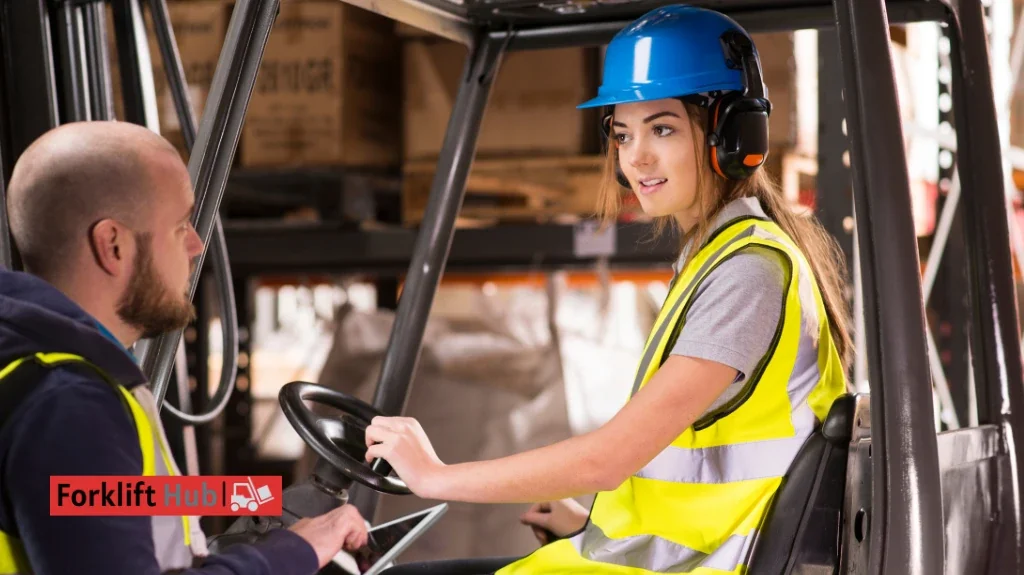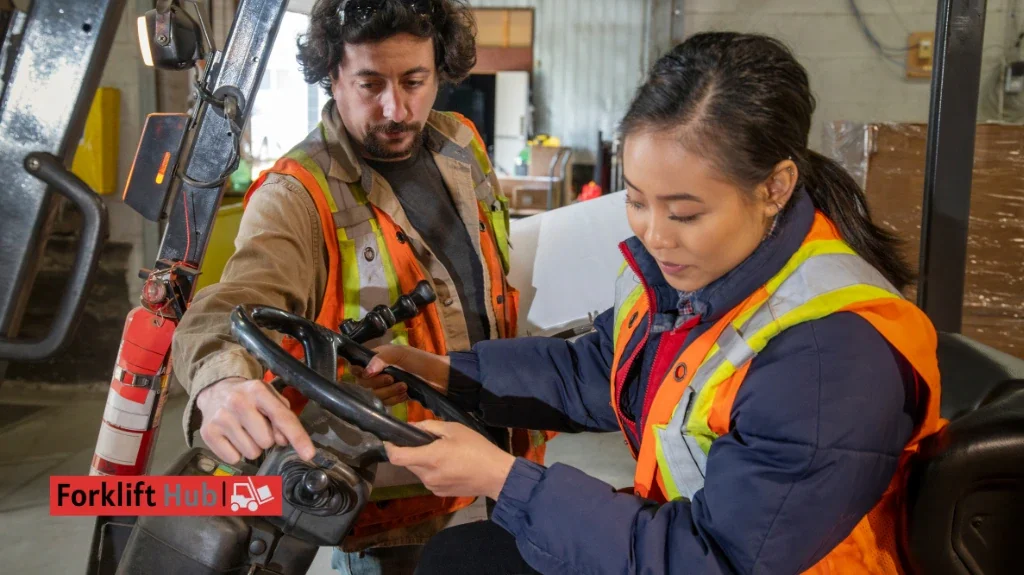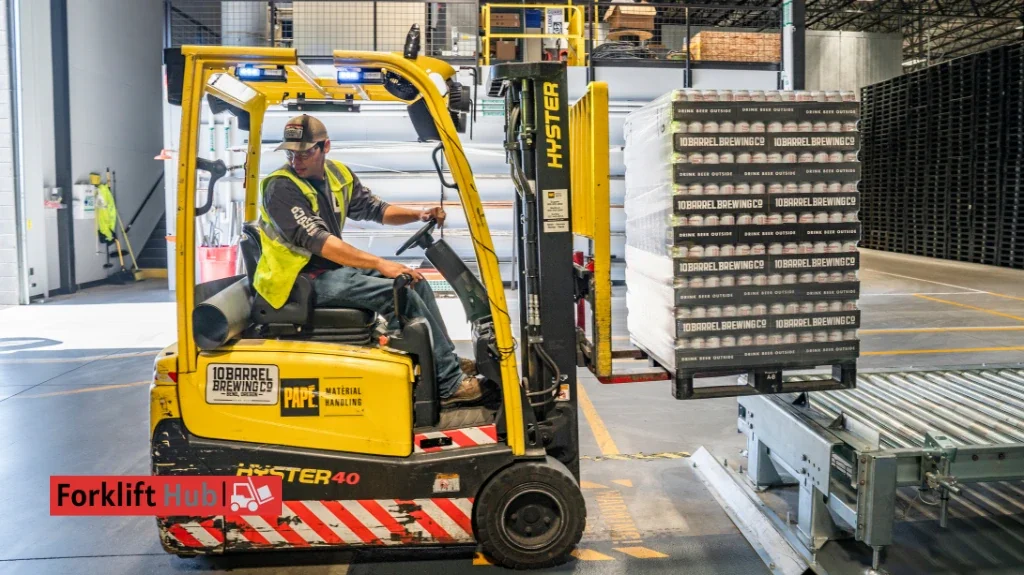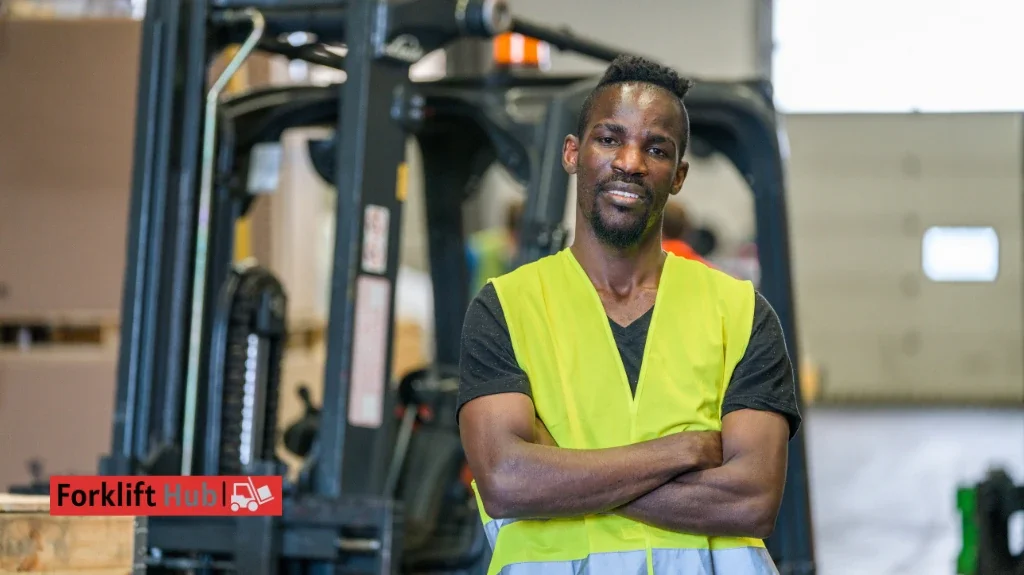Where to Get a Forklift Certification Near Me
Operating a forklift safely isn’t just about skill—it’s a legal requirement in most workplaces. Whether you’re starting a new job, advancing your career, or ensuring compliance for your team, having a valid forklift certification is essential.
If you’ve been searching for “where to get a forklift certification near me,” you’ve come to the right place. In this guide, we’ll show you how to find reputable training providers, highlight top certification programs in major Canadian cities, explain what to look for in a course, and answer common questions about forklift certification. By the end, you’ll know exactly where and how to get certified so you can operate safely and confidently.
Ready to get started? Contact Forklift Hub today to find a trusted forklift certification provider near you.
Key Takeaways
Forklift certification is essential for workplace safety, compliance, and career advancement.
Choose a reputable provider by checking accreditation, reviews, instructor experience, and course options.
Top certification providers are available in major Canadian cities like Toronto, Vancouver, Calgary, and Montreal.
Look for programs that combine hands-on training with online theory, offer flexible scheduling, and provide support materials or refresher options.
Common questions include age requirements, certification validity, test retakes, and online training options—most programs require hands-on practice.
Book courses early, prepare for tests with manuals or practice materials, and understand your workplace-specific requirements.
Forklift Hub can help you find the best certified training provider near you and simplify the process.
Where to Get a Forklift Certification Near Me
1. How to Find a Reputable Forklift Certification Company
It is important that you choose a trustworthy forklift certification company so that you receive appropriate training and a recognized certification. The following are some of the factors to consider when evaluating potential providers:
Check for Government or Industry Accreditation
Before registering for a forklift training program, make sure the certifying body meets existing safety and industry standards. Accreditation ensures that what you receive during the training is within workplace safety regulations and recognized by employers.
Make sure that the training provider follows the guidelines set out by organizations such as the Canadian Centre for Occupational Health and Safety (CCOHS), the Occupational Health and Safety Act (OHSA), or other provincial safety bodies that relate to you.
Make sure the provider conforms to existing safety standards and training protocols.
Accredited courses are more likely to be recognized across different provinces and employers.
Accreditation provides peace of mind that your certification will be legitimate and widely recognized.
Read Reviews and Testimonials
Checking what previous students and employers have to say can give valuable insight into the quality of a certification provider.
Search for online reviews on Google, Yelp, or other trusted platforms.
Look for LinkedIn recommendations from people in your industry.
Check local business directories to see if the company has a consistent positive reputation.
Reading reviews helps you separate high-quality providers from those with limited experience or poor customer service.
Ask For Instructor Experience
Instructor experience can potentially significantly affect the quality of your forklift training.
Make sure instructors possess real-world experience driving forklifts in real work environments.
Ask if trainers are certified and up to date with current safety standards.
Trained professionals can provide hands-on guidance and real-world situations, which help with learning.
Trained professionals instruct you in the skills needed to operate forklifts safely and with confidence.
Compare Costs and Course Lengths
Courses for forklift training vary in cost, length, and format. Evaluating your options helps you find a program that fits your budget and time.
Look at short courses vs. longer, in-depth programs, depending on your experience level.
Consider in-person vs. blended or online learning to match your learning style.
Compare the total cost, including materials, testing charges, and issuing certificates.
Comparing courses allows you to choose a program that's affordable but comprehensive.
Taking the time to review accreditation, reviews, teacher experience, and course content will allow you to choose a forklift certification company that delivers good-quality training with a verifiable certificate.
2. Top Forklift Certification Providers by Major City
You should identify a reputable forklift certification provider in your locality for quality training and certification. Here are some of the best providers in major Canadian cities:
Toronto
Forklift Training Toronto
Offers single training starting at $49 with 100% placement guarantee and OSHA-approved courses.
NovaLift Equipment
Provides on-site, ministry-certified training for most material handling equipment, such as scissor lifts and counterbalance forklifts.
Vancouver
Karm Safety Solutions
Provides in-person and online training courses that are 100% OSHA compliant, instructing all forklift types, including rough terrain.
Rob's Forklift Training
Specializes in on-site forklift training and certification in the Vancouver, Burnaby, Delta, and Richmond BC areas, using your equipment and facility for practical training.
Calgary
NKS Forklift
Certified and experienced firm that offers forklift training and certification starting at $79, as per OHSA requirements.
Rapid Forklift Training
Delivers on-site and off-site forklift training for various models of forklifts, for new and old operators alike.
Montreal
Johnston Equipment
Offers forklift training courses in Montreal to enhance productivity and safety across Quebec.
Liftow St. Laurent Forklift Training Centre
Theory-based and practical hands-on operator training with a 4,000 square foot mock warehouse in which operators can be trained on all equipment types.
Choosing a certified provider will ensure you get quality training that meets industry standards. Check course material, duration, and safety standards when selecting a provider.
If you need assistance comparing these providers or would like more details on the certification process, contact the experts at Forklifthub!
Quick Comparison of Forklift Training Providers in Major Canadian Cities
| City | Provider | Course Type | Duration | Key Benefits |
|---|---|---|---|---|
| Toronto | Forklift Training in Toronto | In-person | 1 day | OSHA compliant, placement guarantee |
| Toronto | NovaLift Equipment | On-site training | 1-2 days | Ministry-approved, multiple equipment types |
| Vancouver | Karm Safety Solutions | In-person & online theory | 1-2 days | OSHA compliant, all forklift types |
| Vancouver | Rob’s Forklift Training | On-site | 1 day | Hands-on, uses your facility & equipment |
| Calgary | NKS Forklift | In-person | 1 day | OHSA compliant, experienced trainers |
| Calgary | Rapid Forklift Training | On-site & off-site | 1-2 days | Covers multiple forklift types, flexible scheduling |
| Montreal | Johnston Equipment | In-person | 1-2 days | Comprehensive program, safety-focused |
| Montreal | Liftow St. Laurent | In-person | 1 day | Hands-on training in a mock warehouse |
3. What to Look for in a Forklift Certification Program
Choosing the right forklift certification program is essential for gaining the skills and recognition you need. Not all programs are created equal, so it’s important to know what to look for before enrolling.
Hands-On Training vs. Online Theory
Practical experience is a critical component of forklift training. While online theory courses can teach safety rules and regulations, hands-on practice ensures you can operate equipment safely in real-world conditions.
Make sure that the course includes actual practice of forklift operation with a certified trainer.
Look for courses that combine theory classes with practical training to reinforce learning.
Practical experience helps build confidence and reduces the risk of accidents on the job.
Hands-on training combined with theory ensures you’re prepared for both the certification test and real workplace scenarios.
Certification Validity and Recognition
Not all forklift certifications are recognized by employers across different regions. Choosing a program with widely accepted credentials is crucial.
Verify that the certification is recognized across Canada.
Make sure that the provider meets industry safety standards, such as OHSA or other provincial workplace health and safety norms.
Recognized certifications improve employability and ensure compliance with workplace safety rules.
Selecting a valid and recognized certification gives you peace of mind that your training meets professional standards.
Flexible Scheduling
Different programs offer varying schedules, so finding one that fits your availability is important.
Half-day, full-day, or multi-day classes may be an alternative depending on your experience and schedule.
Check whether the provider offers weekend or evening sessions for working professionals.
Flexible scheduling enables you to complete certification without disrupting your job or private routine.
A program with flexible scheduling makes it easier to plan your training and complete it efficiently.
Support Materials and Refresher Options
Additional learning resources and refresher courses can reinforce your knowledge and skills long after initial certification.
Check for programs that provide books, videos, or online materials for study.
Ask whether the provider offers refresher training or assistance with skill retention.
Having access to study materials keeps you up to date and confident in applying safety protocols.
Support materials and refresher options ensure your training remains effective and your skills stay sharp over time.
By focusing on on-the-job training, certification length, flexible scheduling, and follow-up support, you can choose a forklift certification course that is appropriate for you and equips you to perform well on the job.
4. Frequently Asked Questions
When it comes to forklift certification, many people have similar questions. Below, we answer common concerns to help you understand the process, requirements, and options.
Do I need a driver's license to get a forklift certification?
In most cases, you do not need a driver's license to enroll in a forklift certification course. A current driver's license may be required for certain types of industrial trucks or corporate policies. Check with your certification provider or employer to ensure you know what they require.
How long is the certification valid?
Forklift certifications typically last three years, although it could be longer or shorter depending on the vendor and provincial laws. After it expires, you'll need to take a refresher course to renew your certification. Employers can require additional recertification or annual safety training requirements.
Can I be certified entirely online?
While there are theory courses online, complete certification usually involves practical training and a practical examination. Some hybrid courses combine online theory with classroom practice for convenience. Totally online certifications that do not include practical training are not usually accepted by employers or by safety authorities.
What age do I need to be to operate a forklift?
Most operator certification courses have age restrictions of 18 years or older. Some locations or companies may have stricter employment or age rules, so check local regulations.
What happens if I fail the test?
If you fail the practical or written exam, most organizations allow you to retest after additional practice or review. Policies vary, so check how many attempts you can take and whether there is an added cost. Failing the test is not unusual for first-timers, and additional training usually ensures success on the second attempt.
Is my certification recognized in Canada and the U.S., or only in some places?
Most accredited programs are recognized in Canada and most U.S. states, especially if they conform to OSHA or provincial occupational health regulations. Always verify that your certification meets specific employer or regional requirements before accepting a job.
Do I need previous experience to become certified?
No experience is usually required, but it will make training easier if you know how to operate forklifts already.
Can my company provide certification training?
Some companies offer in-house forklift training. Make sure that the course is accredited and follows safety requirements.
How long does training usually take?
Certification classes usually take one to three days, depending on the course format and operator experience.
These responses address the most frequently asked questions regarding forklift certification so that you can learn the process and make an informed choice. In case you have other questions or require assistance in seeking a provider locally, reach out to Forklift Hub today for individualized support.
5. Additional Tips for Getting Certified
Even after choosing a recognized forklift certification course, there are certain things you can do that will ensure the process runs smoothly and ensure success. Follow these useful tips to get the most from your training.
Book in Advance to Get a Spot
Forklift certification courses are popular, and as such, you should book in advance to get a spot.
Busy courses are often booked weeks or months ahead of time, especially in large cities.
Early booking also gives you time to plan around work or other commitments.
Prepare for the Test
Pre-reading course books and safety details before your course can improve your confidence and performance.
Practice tests or online materials are occasionally offered by providers; use them to become familiar with the material.
Preparation reduces stress and optimizes your on-the-job training.
Understand Workplace Requirements
Trades may require training on one of a variety of forklift types, such as counterbalance, reach, or rough-terrain.
Double-check with your employer or prospective workplace what forklift types you need to be certified on.
Being aware of these requirements beforehand makes your certification valid and immediately transferable to the workplace.
By taking these tips to heart, your forklift certification experience can be easy, effective, and wholly aligned with your career goals.
Having trouble finding the right course? Contact ForkliftHub, and we'll connect you with the best forklift training provider in your area. Let us do the legwork for you.
For a complete overview of forklift certification, explore our ultimate guide to forklift certification here.
Where to Get a Forklift Certification Near Me? Contact ForkliftHub.
Certification is convenient, easy, and efficient with ForkliftHub. We connect you with expert trainers and provide flexible schedules to accommodate your needs. Whether you're a single individual in need of certification or an employer in need of certifying employees, we can help.
Experienced Professionals with Field Experience
We connect you with professional trainers with extensive real-world industry experience in your area. Our instructors are familiar with actual job site conditions and safety issues. You'll learn hands-on knowledge that is beyond the textbook.
Certification for All Types of Forklifts
ForkliftHub provides certification for all categories of forklifts. Whether you're driving a counterbalance, reach truck, or rough terrain forklift, we have you covered. Training is equipment-specific to the equipment you'll be operating.
Group and Individual Training Options
We offer flexible training options to accommodate your situation. Enroll in individual certification or arrange training for your entire crew. We make compliance easy for individuals and companies alike.
Convenience of On-Site and Off-Site Training
Choose the site where training is most convenient for you. We can bring trainers to your work location or arrange training at a convenient facility near you. This convenience saves time and gets operators trained at the location where they will operate.
*Disclaimer
This post is intended for informational purposes only and does not constitute legal or professional advice. Forklift certification requirements may vary by province, employer, and specific job site regulations. Always consult with your employer, local regulatory authorities, or a certified training provider to ensure compliance with current safety standards and legal requirements. ForkliftHub is not responsible for any liability or damages resulting from the use of this information.








